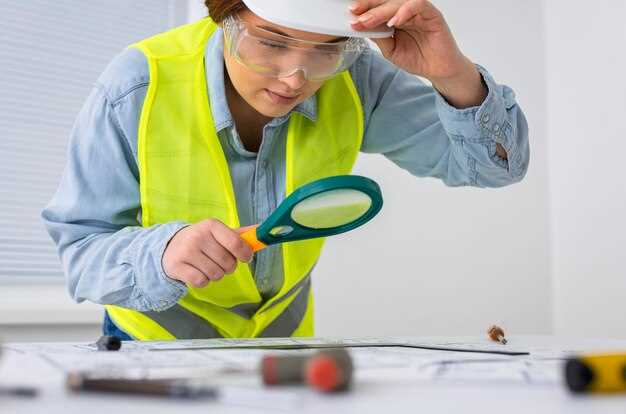
When it comes to ensuring the safety and value of your property, enlisting the services of a qualified appraiser and inspection expert is essential. Whether you are buying a new home, managing an investment property, or simply ensuring your current home is in good condition, the right professional can provide you with the critical insights needed to make informed decisions.
Choosing an inspection service can feel overwhelming, given the multitude of options available. However, understanding the qualifications and certifications of inspection experts can significantly streamline your selection process. A proficient inspection expert not only assesses the physical condition of the property but also identifies potential issues that could affect its market value.
In this guide, we aim to equip you with the knowledge to hire a competent inspection expert. We will cover key factors to consider during your search, the types of inspection services available, and the questions you should ask potential candidates. By the end of this article, you will be better prepared to make a sound choice that aligns with your property goals.
How to Verify Credentials and Certifications of Inspection Professionals

When hiring an inspection professional, verifying their credentials and certifications is crucial to ensure you receive quality service. Here are the steps to effectively assess their qualifications.
1. Request Documentation: Always ask for copies of relevant credentials and certifications. Inspectors should be willing to provide proof of their training and licensing. Look for certifications from recognized organizations in the inspection field.
2. Check Licensing Status: Each state has its own licensing requirements for inspection professionals. Visit your state’s official website or regulatory body to verify the appraiser’s licensed status. Ensure that the license is active and not expired.
3. Review Professional Memberships: Membership in professional organizations can indicate a commitment to ongoing education and adherence to industry standards. Check if the inspector belongs to recognized associations, such as the International Association of Certified Home Inspectors (InterNACHI) or the American Society of Home Inspectors (ASHI).
4. Confirm Insurance Coverage: A qualified inspection professional should carry liability insurance. This protects you in case of any errors or omissions in their service. Request proof of insurance and verify its validity.
5. Ask for References: A reliable inspector should be able to provide references from previous clients. Reach out to these references to inquire about their experiences and satisfaction with the inspection performed.
6. Look for Reviews and Ratings: Online platforms and review sites can provide insight into an inspector’s reputation. Search for feedback from clients regarding their professionalism, thoroughness, and overall service quality.
7. Conduct Interviews: Schedule an interview to discuss the inspector’s qualifications, experience, and approach to their work. This conversation can help gauge their expertise and professionalism in conducting inspections.
Taking these steps will not only help you verify the credentials and certifications of inspection professionals but also ensure that you choose a qualified appraiser who can meet your specific needs.
Key Questions to Ask Before Hiring an Inspection Service

When considering an inspection service, it’s crucial to gather pertinent information to ensure you hire a qualified appraiser. Start by asking about their experience in the field. Inquire about how long they have been providing inspection services and if they specialize in specific types of properties or inspections.
Next, ask about their credentials and certifications. Verify if the appraiser holds any professional licenses and if they are affiliated with recognized industry organizations. This can be a good indicator of their commitment to maintaining standards in the inspection field.
Inquire about their inspection process. Understanding the methodologies they use can provide insight into the thoroughness of their service. Ask how they document their findings and if they provide a comprehensive report, including photographs and detailed explanations of any issues discovered during the inspection.
Discuss the scope of their services. Clarify what is included in the inspection, such as structural elements, electrical systems, plumbing, and any specific issues you are concerned about. Also, determine whether they perform additional assessments, such as radon or mold testing, if necessary.
Ask for references from past clients. Speaking with previous customers can help you gauge the appraiser’s reliability, professionalism, and quality of work. It can also provide reassurance about their ability to deliver an accurate and fair assessment.
Finally, discuss pricing and the factors that influence their fees. Be sure to understand what you are paying for and if there are any additional costs that might arise. This transparency is vital for making an informed decision about hiring an inspection service.
Understanding the Cost Structure of Certified Appraisal Services
When engaging a certified appraisal service, understanding the cost structure is essential for making informed financial decisions. Unlike standard inspection services, certified appraisals typically involve a more complex evaluation process, reflecting in their pricing.
Costs can vary widely based on several factors. Experience and Credentials: Certified experts with extensive experience and specialized qualifications may charge higher fees than their less experienced counterparts. Their expertise often translates to more accurate assessments, which can save clients money in the long run.
Type of Property: The nature of the property being appraised plays a significant role in determining costs. Residential properties tend to have standardized appraisal fees, while commercial properties can incur higher charges due to their complexity and unique characteristics.
Geographic Location: Prices for certified appraisal services can also differ based on the region. Urban areas typically see higher rates due to elevated demand and living costs compared to rural locations.
Scope of Service: The level of detail required in the appraisal will influence the cost. Comprehensive appraisals, which may include extensive market research and property analysis, will naturally be more expensive than basic evaluations.
While price is a critical consideration, it is equally important to evaluate the value and accuracy offered by a certified expert. Investing in high-quality appraisal services can significantly impact decision-making, ensuring that you receive a fair evaluation tailored to your specific needs.




